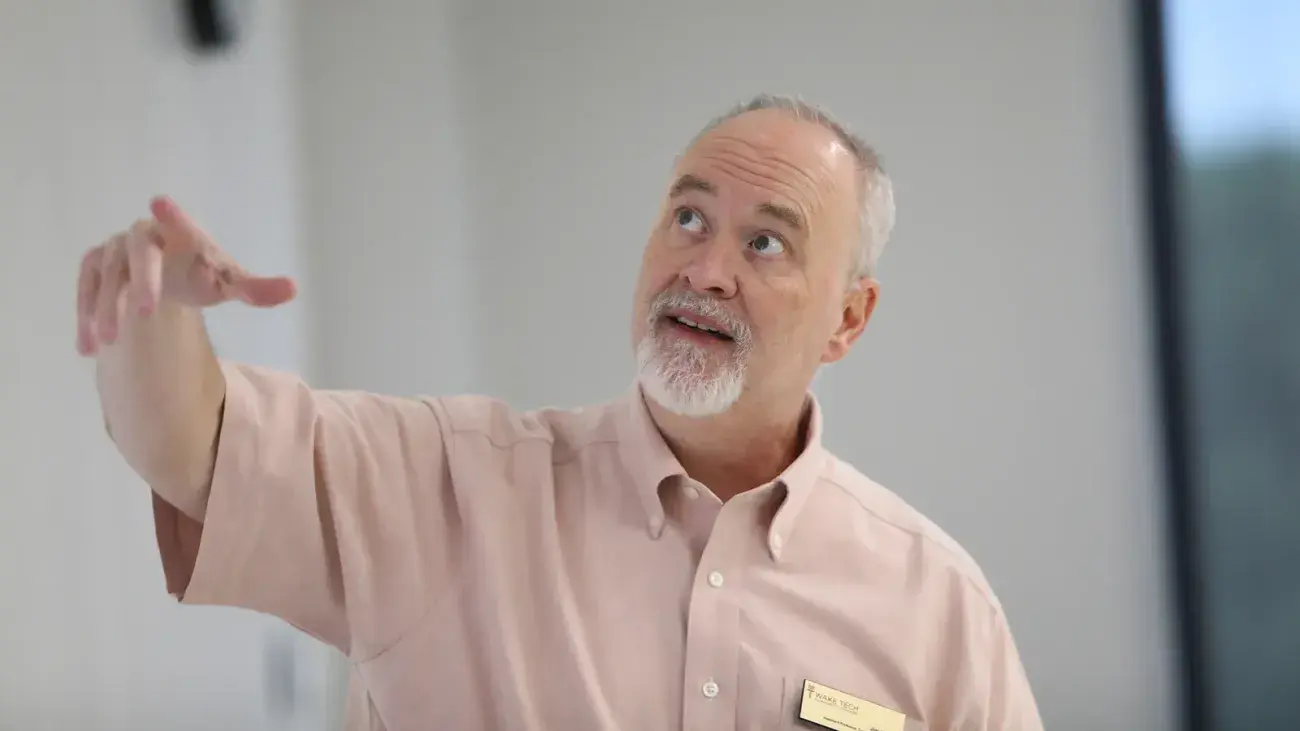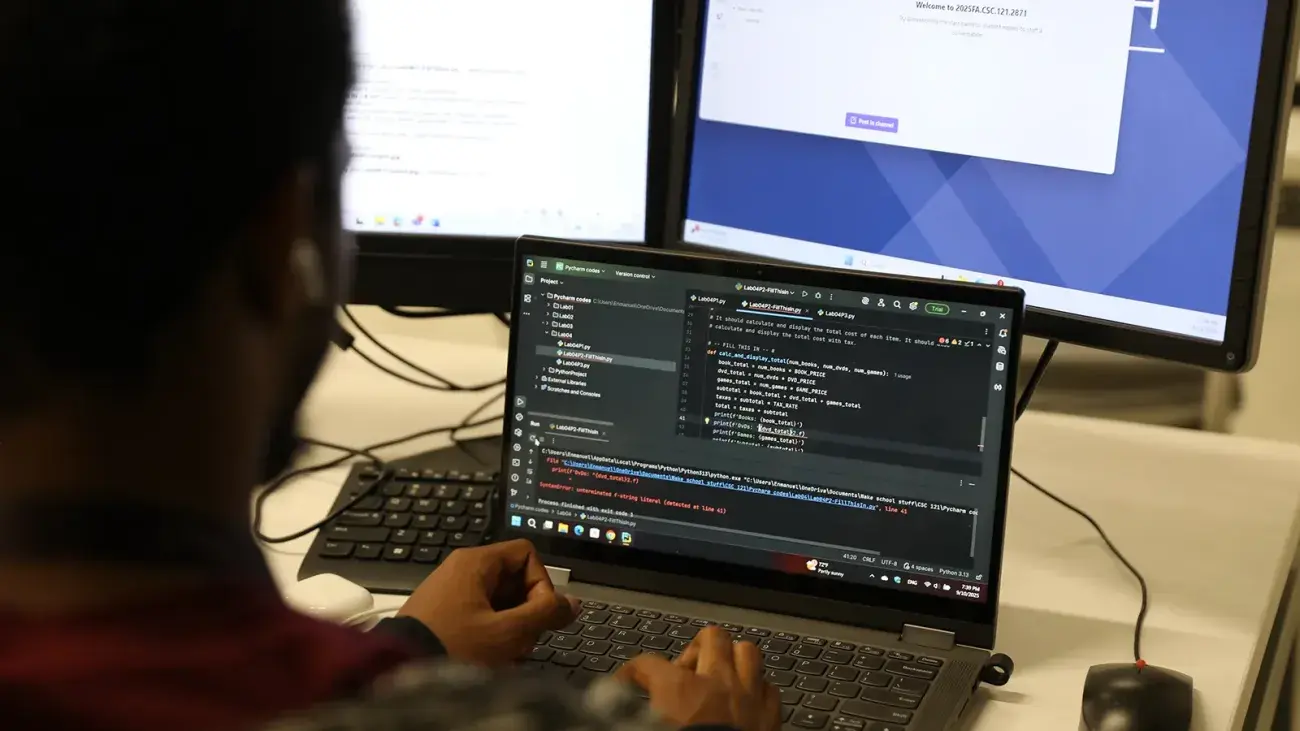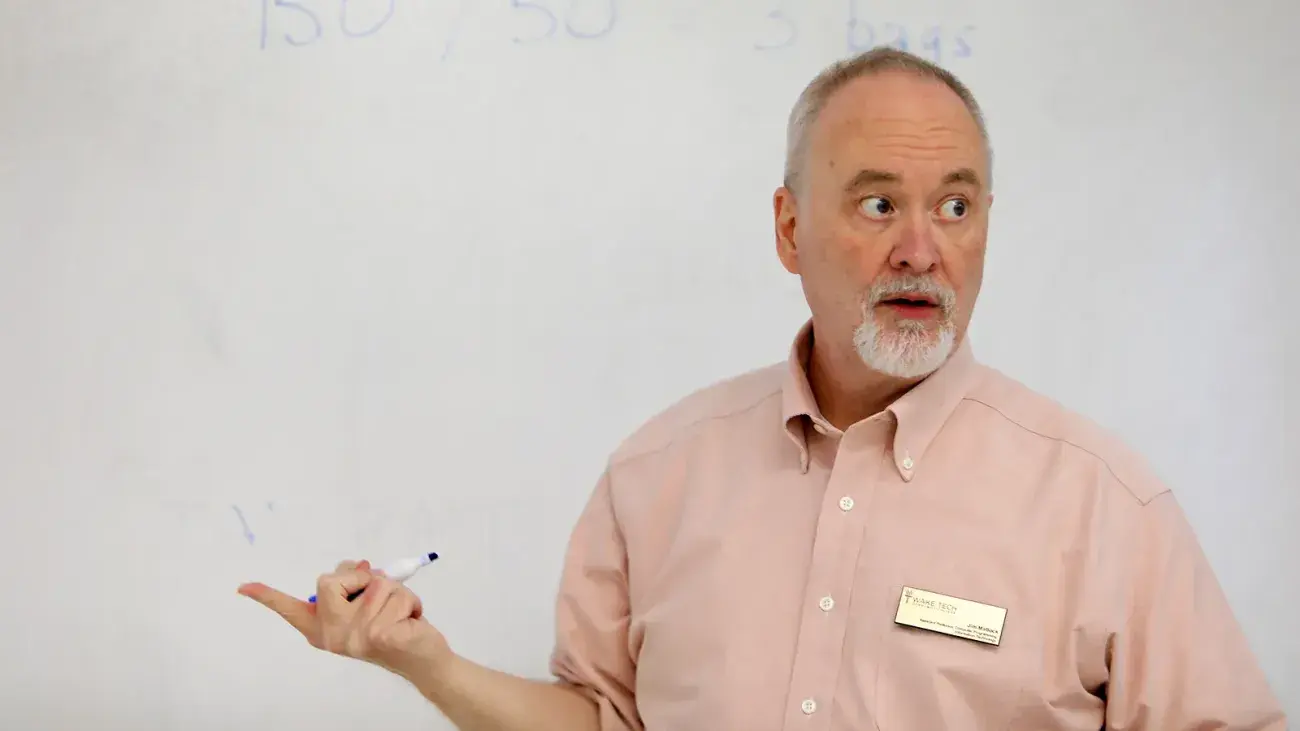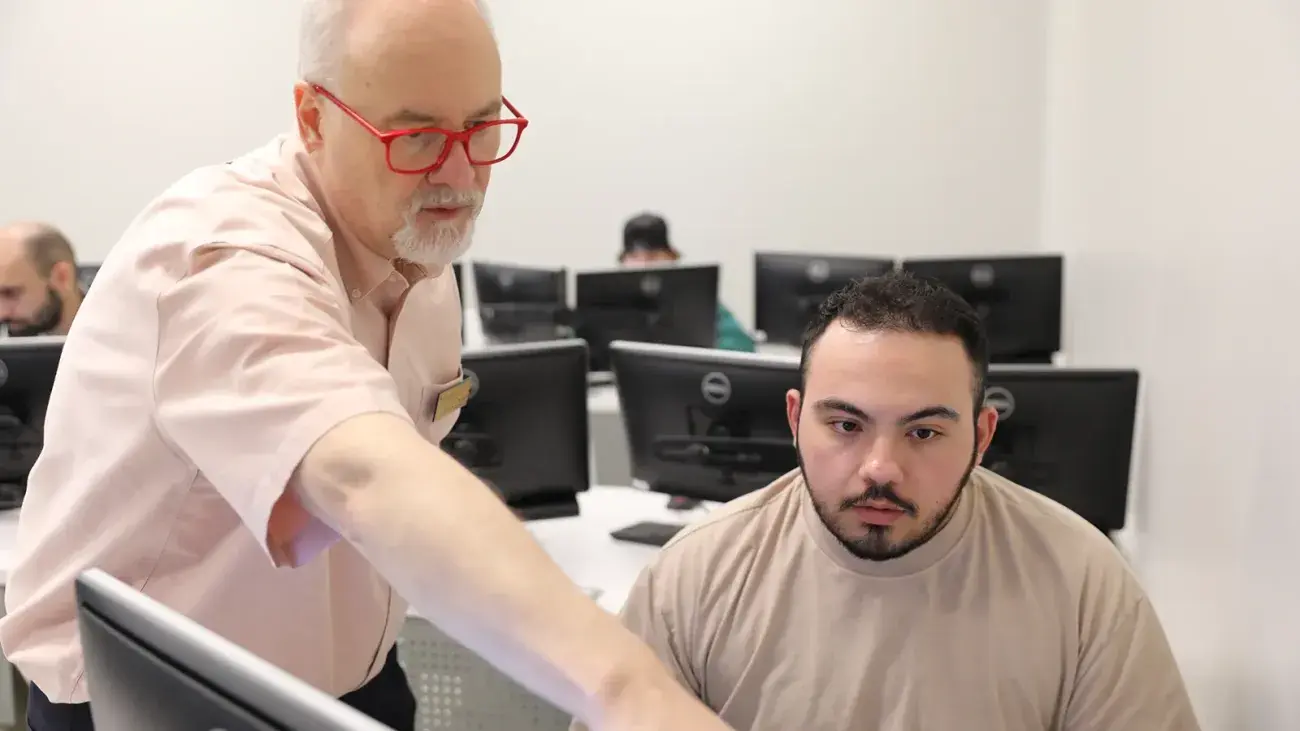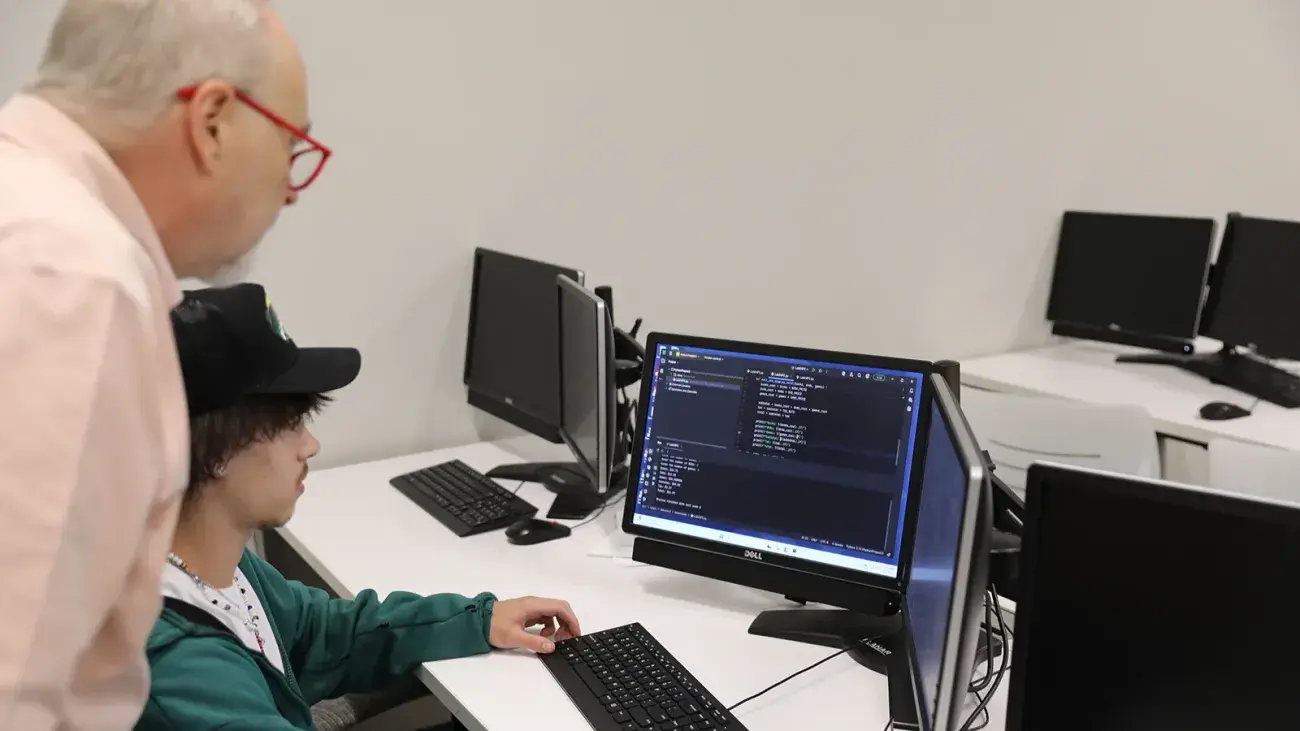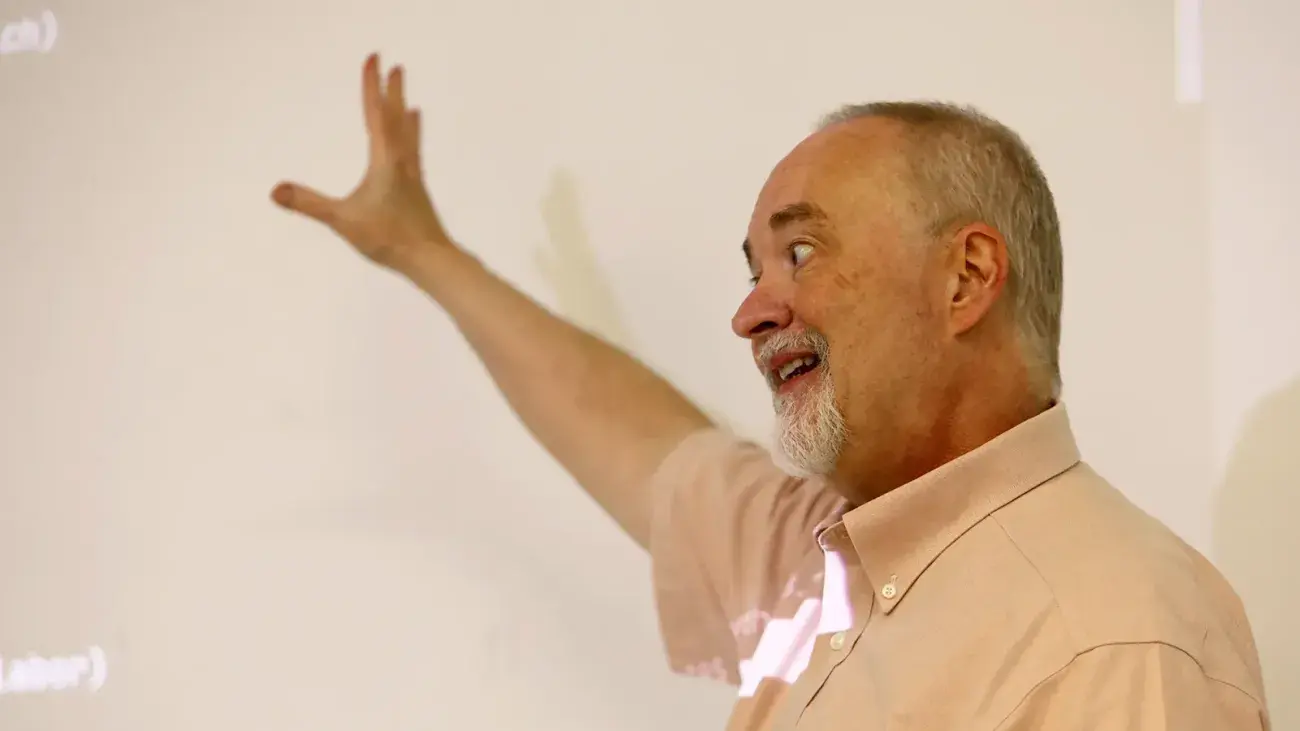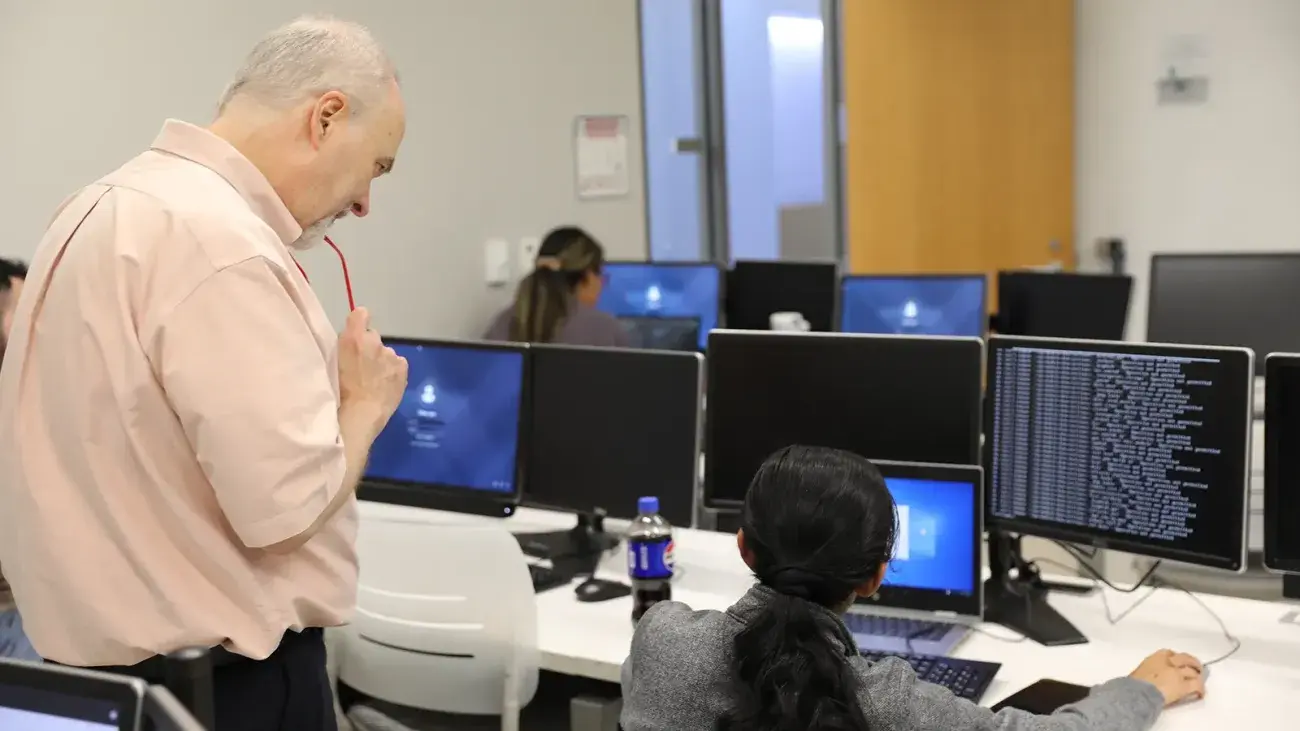Faculty Spotlight
Computer Programming & Development
Programming Instruction for Student Success
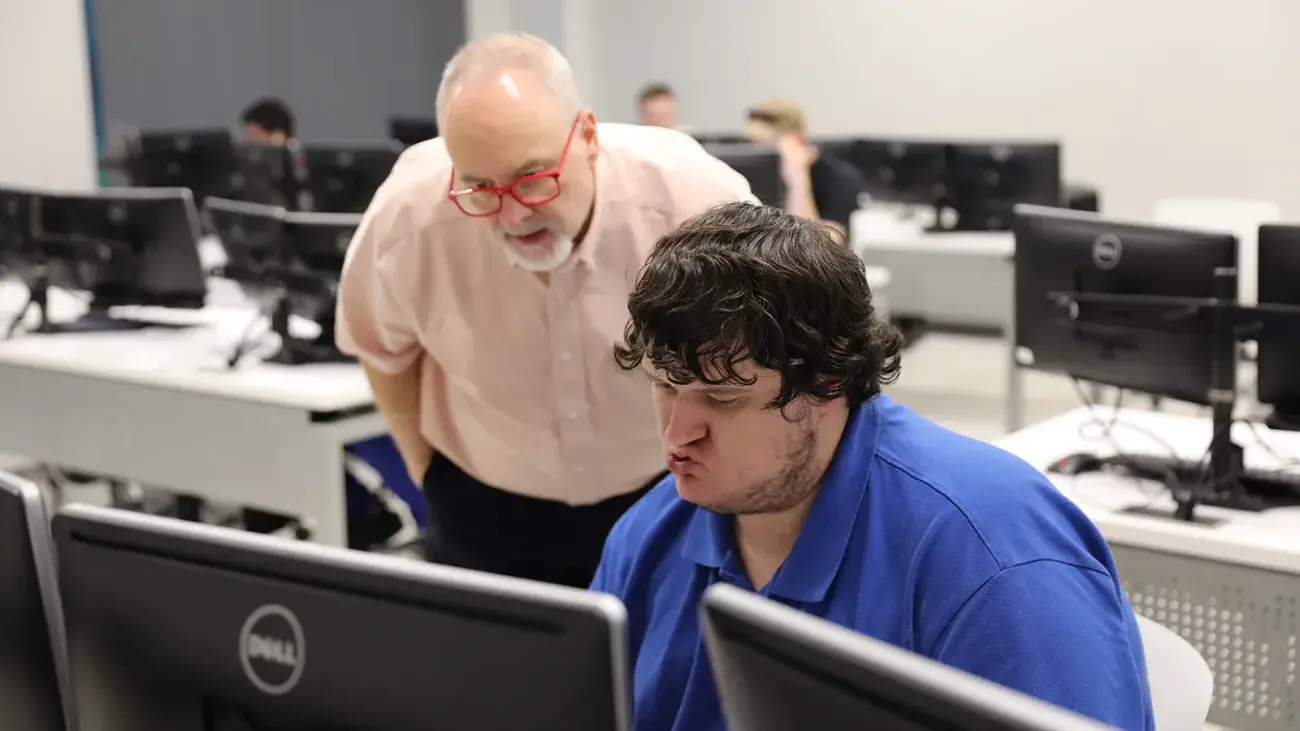
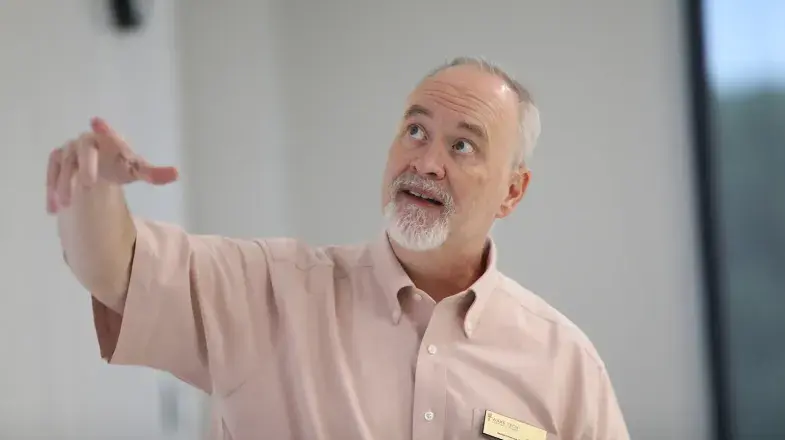
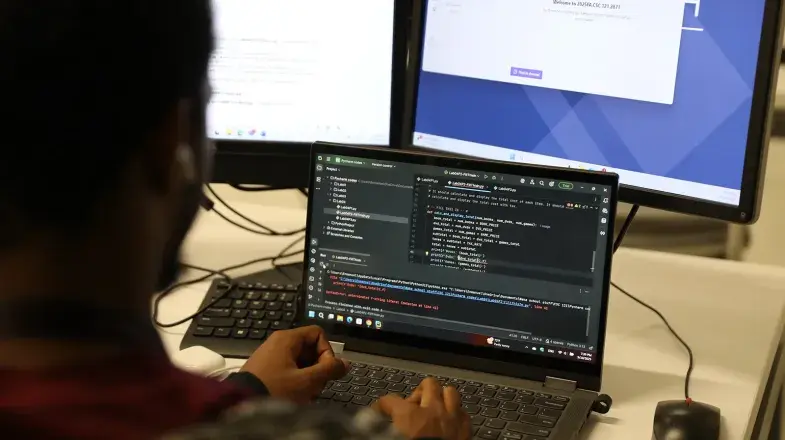
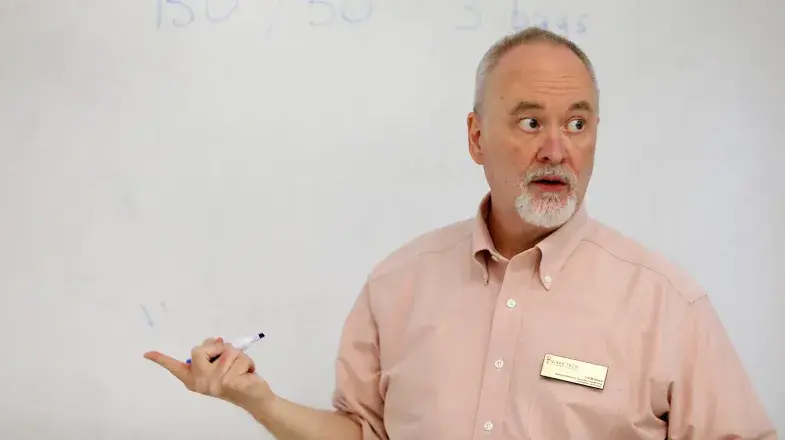
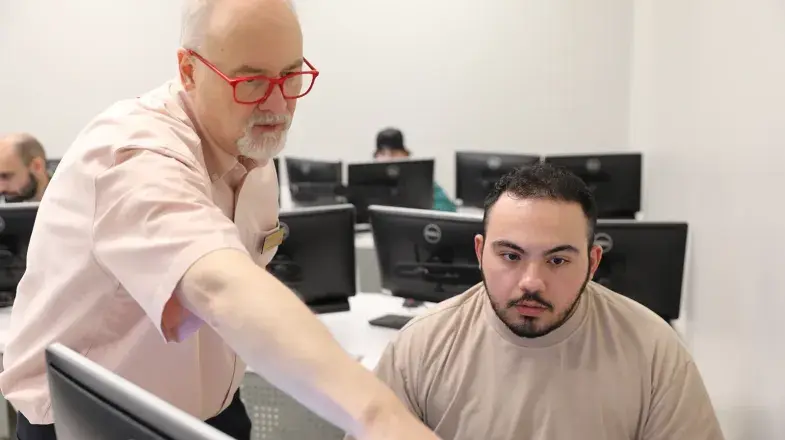
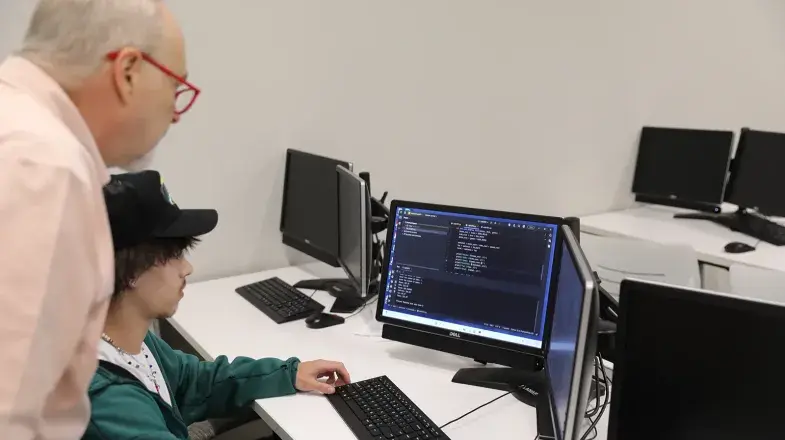

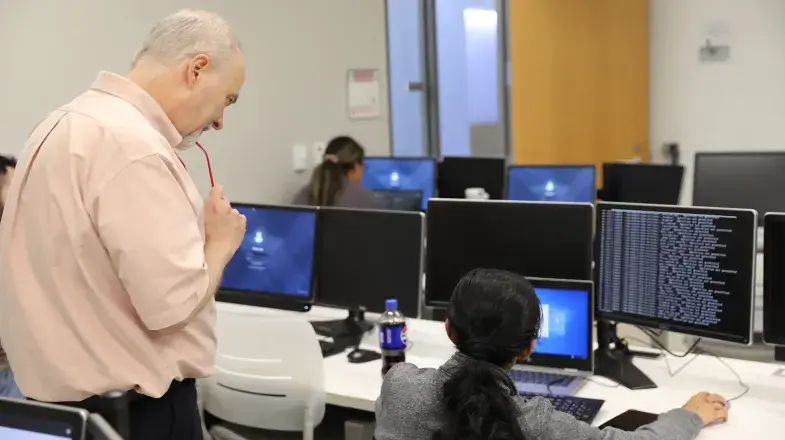
Wake Tech Assistant Professor Jim Matlock has become somewhat of a celebrity among some area high school students.
Matlock often records his Computer Programming & Development lessons so students can watch the videos later for review. Instructors in the Wake Early College of Information and Biotechnologies then started using the videos to teach Python programming to their students, and when a group of those students later spotted Matlock at an IT career fair Wake Tech hosted, it was like a brush with fame for them.
"I saw some students pointing at me and whispering," Matlock recalled with a laugh.
When the students finally approached him and confirmed he was the instructor in the Python videos, they thanked him for recording the lessons and asked him to pose with them for selfies.
"Teaching is hard work, and you're often not sure if you're making an impact," Matlock said. "So, it's wonderful to get that validation."
Teaching is a second career for Matlock, following decades as a programmer for Texas Instruments, Nortel Networks and IBM. But being in front of a classroom is almost second nature to him.
He recalls what he thought as an 8-year-old while watching his father judge a 4-H competition near their home in southwestern Virginia: "I want to do that. I want to get up in front of people and give a demonstration."
So, from age 9 until he went to college at Virginia Tech, that's what he did each year as a 4-H member. He once won the state-level competition for his presentation on computers in which he synced up his talk with computer animation he had programmed.
Matlock's interest in computers also can be credited to his father, a high school teacher who routinely brought a RadioShack TRS-80 home from school to understand how it worked. Matlock said he loved playing with the device and eventually learned Basic programming on it.
He now shares 4-H anecdotes and other stories about himself with students in a sometimes self-deprecating, always informative teaching style that won him a 2025 Wake Tech Excellence in Teaching Award.
"I've been programming for more than 30 years, but I still fall back on hints when my brain hurts," he told a class while showing mnemonic devices to remember how to code conditional statements.
"And it hurts a lot," he added after a long pause.
Joseph Roger, a Network Management student who's learning Python to expand his skills, says Matlock is by far his favorite professor.
"He's extremely charismatic and very patient with students," Roger said. "He gets the content across and makes sure everyone is on board without slowing things down too much for the quick learners."
Isabel Heineman, a Cybersecurity student who, like Roger, is trying to expand her skills by learning some coding, waited to take the Python class until Matlock was teaching it because other students had recommended him as an instructor.
"He creates his own content," she said. "His lessons are clear and concise."
During one class, Matlock mentioned a book on teaching that he was reading, Heineman added, saying, "He not only knows the material and is passionate about it, but he's working to be a better teacher, and I appreciate that."
Teaching is "not just about bringing the information," Matlock says, noting that he tries to provide support to students when needed. Student support services like the Care Center, the Tutoring and Learning Center and Career Services help toward that end, he added.
"Students have to bring the effort, for sure, but it's up to me to make sure they can access the material," he said.
Matlock says teaching at Wake Tech gives him the opportunity for one-on-one interaction with students, and he also supports the college's mission.
"Wake Tech's focus on workforce development is something I really believe in," he said. "We can approach lessons from more of a practical side than theoretical."
